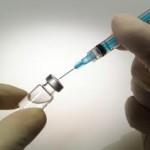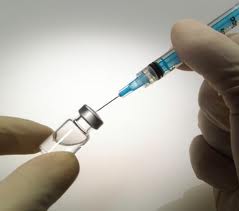A novel vaccine that can be administered orally has been shown to block rectal infection with SIV, the monkey equivalent of HIV, in rhesus macaques. Additionally the vaccine results in rapid re-suppression of viral load in monkeys who were previously infected with SIV. The vaccine appears to work by stimulating the production of a previously unknown class of CD8 T-cells called T-regulatory (Treg) MHC-IB/E-restricted cells that, while recognising HIV themselves, stopped the monkeys’ CD4 cells from recognising SIV as a foreign invader, thereby preventing an immune response to SIV. This suppressant effect, which works in the opposite way to a traditional vaccine, means that the SIV is deprived of the SIV-specific immune-activated CD4 cells it needs in order to proliferate and establish an infection in the body. The idea behind this vaccine is that HIV elevates its numbers in the body precisely by getting the immune system to react to it and thereby make lots of new activated CD4 cells to infect. Thus the thinking here is that if the CD4 cells don’t recognise the virus as foreign, no infection is established. They introduced the virus using inactivated SIV with bacteria that either strongly binds to dendritic cells (in the case of BCG) or are recognised as ‘friendly’ by the immune system (in the case of Lactobacillus). Following this they found the Treg MCH-IB/E restricted cells appeared to suppress the response in CD4 cells to HIV by inducing the CD4 cells to change the MHC molecules on their surface. In this way stopping these cells from detecting foreign proteins. Following these results the researchers are now ready to try out this vaccine in healthy human volunteers and virally suppressed HIV infected volunteers. Although it is important to emphasise that the MHC system of self-recognition proteins is the most variable in the body, and between species, and there is no guarantee that what works in rhesus monkeys will work in people.
Immune-suppressant vaccine c blocks SIV infection in macaques

